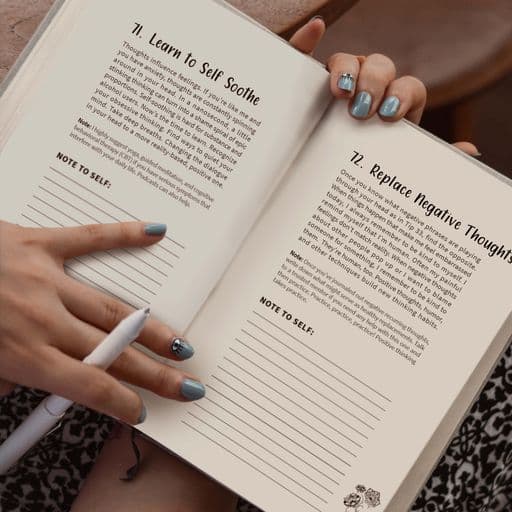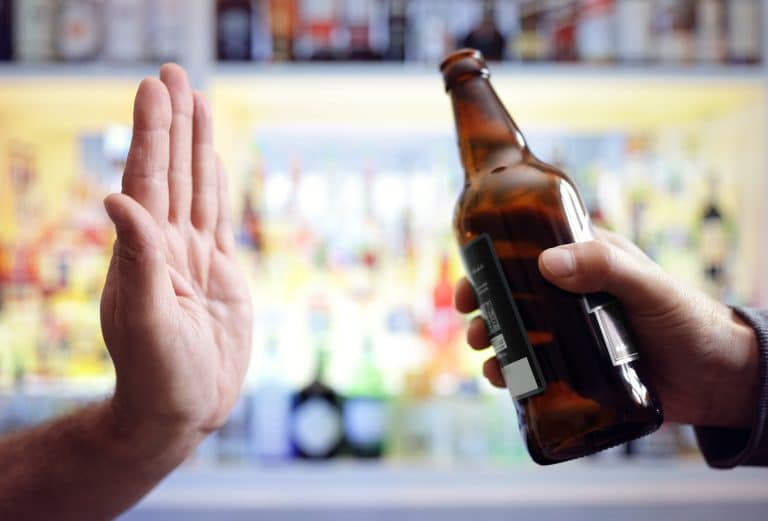Have you come to the wonderful place of wondering what life would be like without drinking?
This is a great place to be and don’t be overwhelmed by the steps that are ahead of you. What’s important is to stay focused on the fact that alcohol is not making your life better. You may even want to ask yourself a few questions like, are you drinking all day, by yourself, or do you feel sick and shaky without alcohol? Has drinking caused problems with your family? Has drinking interfered with your job? Has your drinking become unsafe? Maybe this is the time to start new and healthier habits, but how to do it? Learn what you should know about binge drinking.
Alcohol Withdrawal when you quit drinking
Not drinking when you’ve been a drinker is both a physical change and a psychological one. You know that already, right? If you’re a heavy drinker, symptoms may develop within several hours to a few days of quitting and usually worsen after 48 to 72 hours. Some symptoms—such as insomnia, mild anxiety, and tremors—can start happening while you still have a measurable blood alcohol level, but most symptoms occur after alcohol has left the system. Depending on the severity of the level of alcoholism, withdrawal symptoms generally last from several days to several weeks to, in rare cases, months.
Here’s the psychological part when you quit drinking
While physical withdrawal symptoms may disappear completely within a few weeks, psychological withdrawal can last for years. Many individuals experience the desire to drink (craving alcohol) with every new event or trigger they face.
Your body may crave alcohol for weeks or months, but your brain will keep telling you what a good friend alcohol is even if it’s been your worst enemy for years. Alcohol is still the king of addictions, so if you’re having trouble with it, you’re not alone. But we quit drinking, so you can, too. Remember, you don’t have to have a drinking problem to want to quit drinking. Alcohol is a toxin that impacts both your health and your behavior. There’s nothing healthy about drinking too much.
Still, alcohol is the drink of choice for millions of people. In fact, 1 in every 7 adults in the US has a drinking problem. We know there are so many temptations to drink and to keep drinking that it’s hard to imagine what life might be like sober. We’re here to say, it’s worth the effort. Here’s how to get sober.
Awareness is the first step
Most people have some bad experiences before they decide to get sober. They may have been arrested, lost a job, or a relationship, missed too many Mondays at work, or are just not at the top of their game because they’d rather be drinking. They may secretly wonder if they are a problem drinker, or loved ones tell they they do. Here are ten questions that can help clarify your relationship with alcohol. How do you score?
- Do I think I have a problem with alcohol?
- Have I thought about quitting? How often?
- Do I wake up ashamed/guilty for drinking the night before?
- How long have I gone without drinking?
- Do I have a STOP button, or do I keep going?
- Can I stop after one drink?
- Do I have the urge to look for more alcohol after finishing a whole bottle of wine or a few beers at home?
- Am I angry or agitated if I choose not to drink for more than one day?
- Do I look for reasons to drink or make up stories to justify drinking?
- Do I feel the need to sneak drinks or hide my drinking?
Acceptance is the next step to recovery
A thousand and one people can tell you you have a drinking problem. You may even know it yourself, but until you accept that it’s real and pressing and, most important, crucial to you, taking action will be hard. Did you know there are seven stages of drinking. What is your level of drinking? There is a formal test for this. “Do I have a drinking problem?” Which you can find and take at 12step.com, or aa.org.
Acceptance leads to Action
Denial has probably kept you back for some time, but now you’re aware and in a state of at least partial acceptance that alcohol is not your friend. What now? First, if you shake when you wake up, you sweat and have other withdrawal symptoms when you don’t drink or use every day, it could be very dangerous to quit cold turkey. This is true with many substances. You know what drug sick is, right. If you have withdrawal symptoms, check with a doctor for detox options. Don’t try to quit cold turkey.
Talk to a trusted friend or professional
There are plenty of one-chip wonders in the world. These are people who have decided for one reason or another that they have to stop drinking and using, and they do. These are the people who join NA or AA or Smart Recovery, or Celebrate Recovery and create the sober support group they need to make a recovery plan and stick with it.
But the vast majority of people wanting to get sober need more. It’s always best to seek an addiction professional for evaluation to determine your needs. You may need detox of 3 to 10 days, then an intensive outpatient program for weeks, months, or even years. You may need dual diagnosis treatment. That’s when you use substances and also have a mental illness, like depression. You may need many different kinds of treatment and support along your recovery journey. Connect with people who can help and stay connected. We know you can do it.
I’m ready to quit drinking
Getting sober is the turning point for people who have had alcohol or drug disorders. There’s no better time to start than right now. There’s a sober curious movement that can help give you the words and empowerment to take action. More people are replacing the happy hour with the healthy life. Eating healthy, nutritionally well-balanced foods can help you curb cravings for alcohol and help your body resist an urge to drink.
How to Ask For Help When You’re Ready To Quit Drinking
When it comes to alcoholism, it can be hard to ask for help. In fact, admitting you need help with alcohol addiction is the easy part. However, a lot of people feel embarrassed and ashamed and really don’t know how to go about asking for help.
If you’ve made the decision to stop drinking and want help, there are things you can do. But before we even get into that, know that admitting you need help is nothing to be ashamed of.
Want to Quit Drinking? Talk to Your Doctor
Even for people who know they have a problem, admitting this to someone else means giving up control. It leaves them feeling vulnerable and open to criticism. Unfortunately, this can lead to avoidance and continuing the stop-start cycle that often accompanies alcohol addiction.
Alcohol addiction is not a symptom; it’s a disease that affects thousands of people. As such, your doctor is trained in diagnosing and helping you get the treatment you need. In addition, your doctor took a medical oath to treat you without judgement. If you have a primary care doctor, schedule an appointment to discuss what has been happening.
Be honest and let them know how you really feel. The most important part of recovery is being honest with yourself and those who want to help you.
Send an Email or Phone
If face-to-face conversation makes you too uncomfortable, you can also ask for help via email or phone. For a lot of people, it’s easier to discuss their addiction without being seen. There are a lot of resources online that can help someone who wants help with alcohol addiction get treatment.
You can also reach out to someone you trust and talk about what’s been going on and how you’re to take that first step. You can even contact support groups online or give them a call.
Speak to Others Who Have Recovered
Its perfectly normal to feel like you’re the only person who has struggled with alcohol addiction. However, you need to know that you not. So many people have been where you are right now and have taken that first step to getting the help they deserve. In addition to online support groups, you can also contact local centers or groups in your neighborhood. People in recovery have experienced the same feelings you have, so they can guide you through the process without judgement.
Final Thoughts If You Want To Quit Drinking
Life isn’t always easy; it can be tough even for people who seem to have it all together. But you need to know that when you’re ready to regain control of your life and stop drinking, it’s okay to ask for help. It’s also okay to feel scared about doing so.
Even if you feel apprehensive, you need to take that first step. So many people continue drinking because they’re too afraid to say that simple phrase, “I can’t stop drinking.” Alcohol addiction can affect anyone at any point in their lives. Now, is the time to get back to living.
Lindsey Glass’s 100 Tips For Growing Up
FREE PREVIEW – Download Sample Chapter Now
More articles by Lindsey
What To Do When You Hate Being Sober
Growing Up In Recovery After You Get Sober
There Is Hope For An Addict’s Mom
Check out my book 100 Tips For Growing Up






















